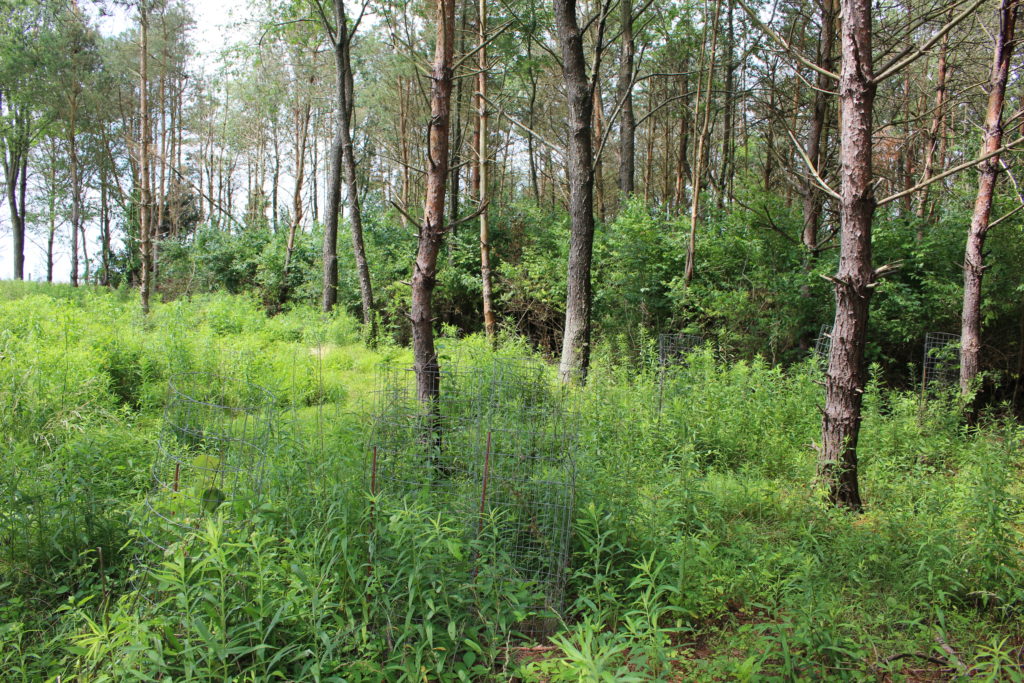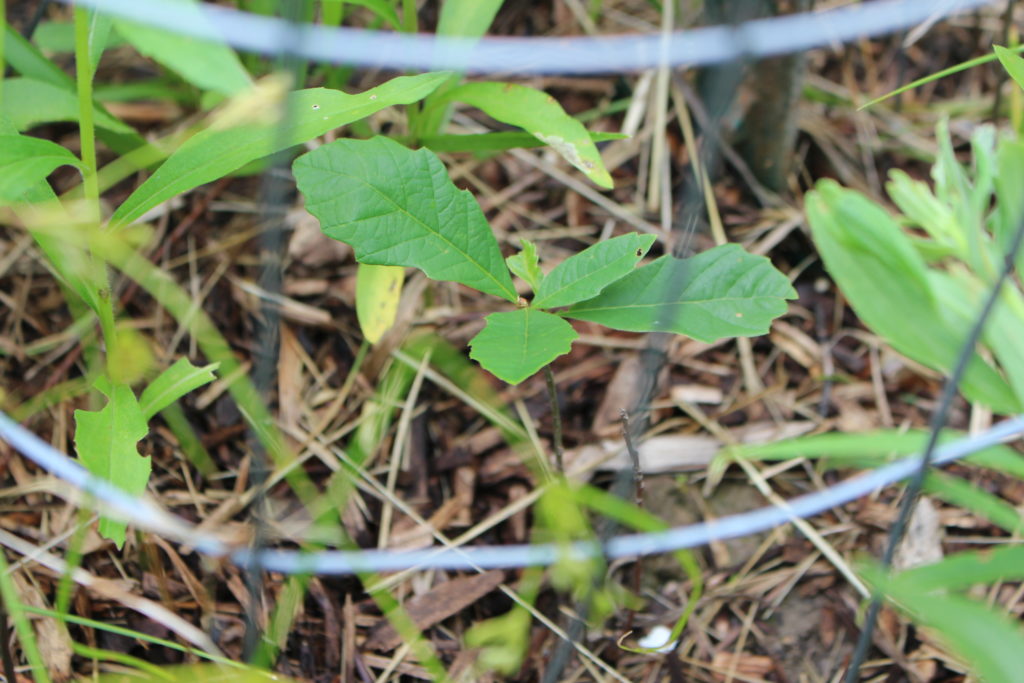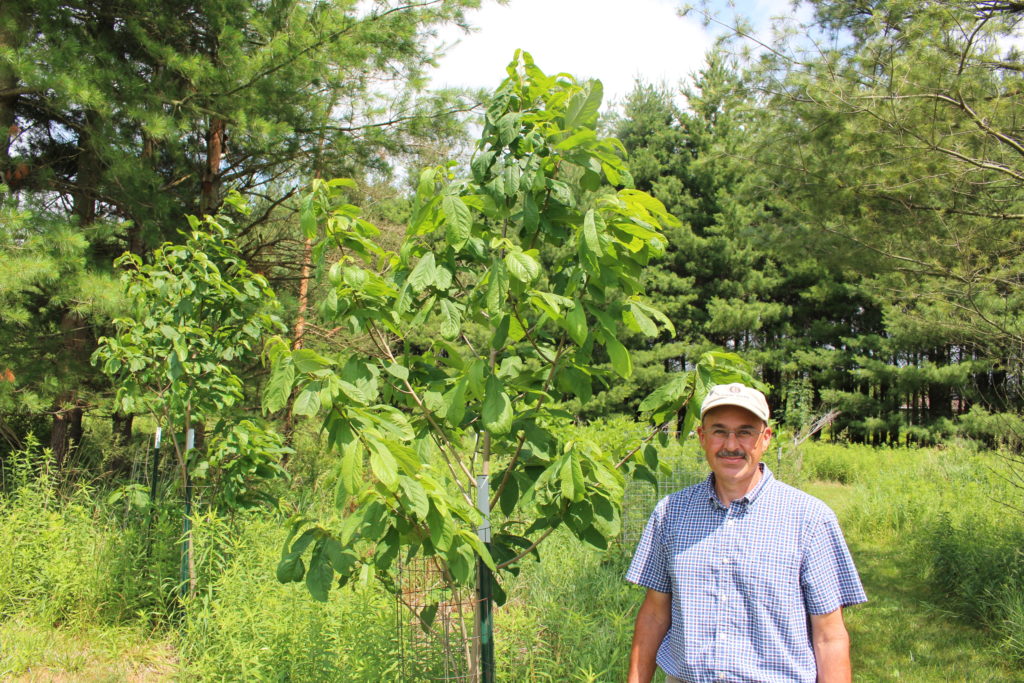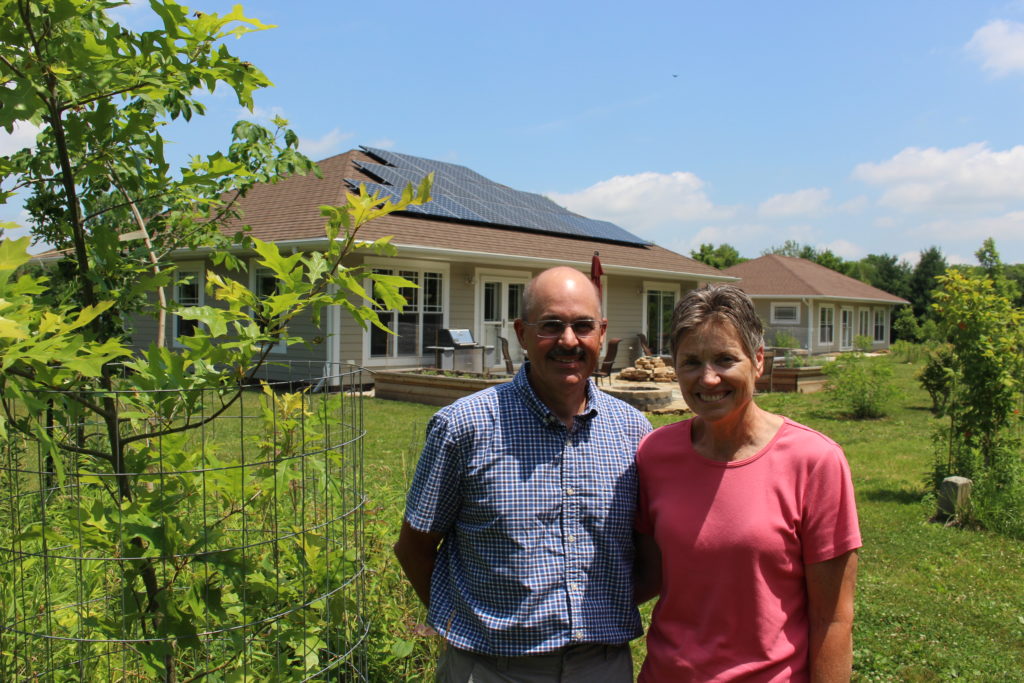In a recent post I wrote that whole faith Christians will work to bring more life to the corners of God’s earth they hold, keep, and use. And they will do so even when the culture of land use around them creates pressure to do otherwise.
Whether that corner is an urban yard, a suburban lot, a rural property, or a farm, there are creative ways to bring more life to the parcels of land under our care. Figuring out those ways is one of the pleasures and challenges of being human.
I would even assert that taking on the challenge of bringing life to different places and at different scales is a path towards growth in our hearts and minds. It takes patience. It takes careful observation and nuance. You need to research and gain new knowledge while also using practical, down-to-earth skills. Anyone doing this will make mistakes. What works at one point may not work at another point. Love and faith will be needed. Sometimes discipline will have to be applied. Sometimes hard choices will have to be made.
Sounds a whole lot like parenting, doesn’t it?
Over time I want to share profiles of what Christian land stewardship looks like in real life. And in this post, I share the land-to-life story of David and Dianda Easter.
In 2008, they acquired a 7.5-acre property near Urbana, Illinois after a search of over a year. They were living in Ohio at the time and had been working with a real estate agent for their search. David’s sister was eager to help. She drove back county roads looking for properties that might not be listed. Her efforts paid off when she found an abandoned Christmas tree farm.
Your average person might have seen only problems. The Scotch pines that were left on the property were succumbing to disease. The former owners had been harvesting the Christmas trees with a big digger but had not been replacing the missing trees or filling the holes that had been left behind. There were over 200 holes scattered about. Each was 3-5’ in diameter and 2-4’ in depth. What’s more, invasive non-native plants like Asian honeysuckle and autumn olive now dominated the undergrowth.

The contrast is stark. Across the Easters’ property line in the background of this image, you can see their neighbors’ land is still dominated by a thick mass of invasive shrubbery that prevents light from reaching the ground. In the foreground you can see what the land looks like after the Easters have removed invasive shrubs and diseased trees over the last 10 years.
It was an aesthetic and ecological mess. The Easters saw a chance to restore and renew God’s creation.
Its context, which David’s sister had noticed, also gave the property latent potential to be ecologically valuable . The property, for instance, is next to a river. River corridors are especially important for wildlife. Their property is also across from a publicly-owned natural area. By restoring this degraded property, the Easters saw they could have a larger impact.
The Easters were motivated by their long-time Christian faith to take on this challenge.
“We’ve done organic gardening for thirty something years,” says David. “We’ve always felt that God created the earth, and the earth should be protected. We believe we need to protect and improve the world around us and leave it a better place, both spiritually and physically.”
The Easters were able to retire early to this piece of land because they had long committed themselves to living as simply as they could, which itself was a reflection of their Christian values. They chose not to buy into consumer culture, which compels people to keep consuming and buying.
“Early in our marriage we set a lifestyle, and we capped it, even when our incomes rose,” says David. “Instead, we saved, and we gave.”
In 2008, they weren’t quite ready to move, but were eager to begin improving their new land. So for the next four years, they would travel from Ohio and spend several weeks of their annual vacations filling in the holes, clearing the invasive plants, taking down the diseased pines, and planting native trees and shrubs.
“The first years we planted and went back to Ohio so we didn’t care for them well so we had to replant quite a few.”
In 2012, they moved to their property in Illinois, building their own passive solar house there with solar panels on the roof providing much of the energy they needed. They also planted a large garden so they could grow more of their food. Now that they were there year-round, their restoration of the land picked up in pace and intensity. To bring ecological life to their land, they’ve planted a wide variety of native trees and shrubs.

The Easters have planted hundreds of native trees on their property since they bought it in 2008 and have also seen native trees and shrubs spring up even when not planted by them. Here is a young oak with protection from deer.
David is proud to recite the diverse native species of woody plants he and his wife have planted, both from seed and as live plants – 10 species of oaks, four species of hickory tree, two maple species, persimmons, sassafras, viburnums, pawpaws (a favorite of mine), hornbeam, Juneberry, wahoo, snowberry, coralberry, ninebark, hazelnut, witch hazel, and spirea. For their own sustenance, they’ve also planted fruit and nut trees and bushes. These include pecans, gooseberries, currants, blueberries, pears, peaches, and plums. In all, they’ve planted 82 different species of trees and shrubs on their property.
“We have a book called Trees of Central Illinois,” says David, “and we’ve planted everything in the book, I believe, except perhaps for the ones that would belong on the river bottoms. Based on the number of fenceposts we’ve purchased for marking the location of the woody plants we’ve planted, there at least 750 trees and shrubs growing right now.”

David stands by one of the pawpaw trees he and Dianda had planted some time ago. Seeing what they planted grow and prosper over time has been a great pleasure for them.
They’ve had pleasant surprises as well. After they cleared out the invasive plants that had been dominating the land under the trees, native plants began springing up that the Easters hadn’t planted, including sassafras, oaks, and spicebush. “We’ve seen plants come up that we would not have expected and had not done so in 20 years,” says David. His guess is that birds were bringing in nuts and dropping berry seeds from other nearby properties.
The rich variety of native plants and the pollen, nectar, fruit, nuts, and cover they provide has attracted a variety of wildlife. They have seen turkey walking through, hawks and eagles flying over, and owls in the woods. Deer are actually overly abundant. They are happy to see coyotes using the land frequently. The red fox are a mixed blessing, as they are beautiful animals but have also absconded with several of the Easters’ chickens. Monarch butterflies, which face a difficult future as a species, often visit their land. Dave and Dianda enjoy watching bluebirds nesting in the next boxes they’ve installed on the property as well..
They’ve even had moments of discovery. “In the tallgrass area one day we saw hundreds of swallows and hundreds of dragonflies,” says Dianda. “Were swallows eating the dragonflies or were they both eating insects there?”
David and Dianda have advice for people who want to bring life to their properties:
1. Do research before you begin
2. Use native plants whenever possible
3. Start planting native plants (especially trees and shrubs) as early as possible in your ownership or stewardship of a piece of property so you can enjoy them as they grow
4. It’s never too late to start planting and restoring your land
5. Start small so you don’t become overwhelmed and can learn lessons that you can easily fix as you go
It was a pleasure to spend time with David and Dianda on their property when I took the photos you see. They were simultaneously at peace with who they were and energetic in their life purpose that is bound up with their Christian faith.
I first met David at a land conservation meeting we both attended in central Illinois. In addition to what he and Dianda are doing on their land, David also works to help God’s creation be protected and restored to life on a larger scale by serving on the board of Grand Prairie Friends. This is an organization that protects ecologically important lands from development by purchasing them and also by using legal tools like conservation easements. David and Dianda attend and are active in the life of Stone Creek Church in Urbana.





